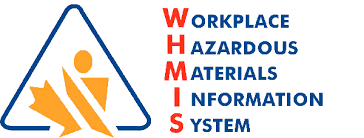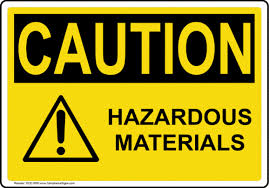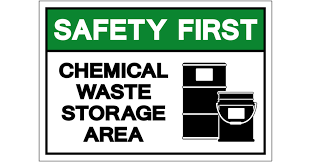
Guide to Handling Hazardous Materials in the Workplace
16th November, 2023In any industrial setting, the handling of hazardous materials demands precision, foresight, and a robust emergency response plan. This blog aims to shed light on the specific challenges associated with hazardous materials and outline protocols for effectively dealing with emergencies such as fires. Moreover, we'll guide you through the steps to develop a comprehensive response plan that ensures the safety of your workforce and minimizes environmental impact.

Challenges in Handling Hazardous Materials:
1. Identification and Classification: One of the primary challenges is accurately identifying and classifying hazardous materials. Understanding the nature of these materials is crucial for implementing appropriate safety measures and response strategies.
2. Specialized Training: Handling hazardous materials requires specialized training for personnel. Ensuring that your team is well-versed in the properties, risks, and emergency procedures associated with these materials is essential.
3. Communication and Coordination: Effective communication and coordination during emergencies can be challenging, especially when dealing with hazardous materials. Establishing clear communication channels and protocols is vital to prevent confusion and ensure a swift response.
4. Containment and Control: Containing a hazardous materials incident swiftly is critical. Challenges may arise in promptly isolating the affected area and implementing control measures to prevent the spread of contaminants.
Protocols for Dealing with industrial Safety and Hazardous Materials Emergencies:

1. Immediate Response: In the event of a hazardous materials emergency, the immediate response involves activating alarms, notifying emergency services, and initiating evacuation procedures as necessary.
2. Emergency Services Coordination: Collaboration with local emergency services is paramount. Ensure that responders are aware of the specific hazardous materials involved, enabling them to tailor their approach accordingly.
3. Evacuation and Sheltering: Establish clear evacuation routes and assembly points. In some scenarios, sheltering in place might be the safest option, requiring designated areas with proper ventilation and protective equipment.
4. Decontamination Procedures: Develop decontamination protocols for affected personnel and equipment. This includes identifying decontamination zones and providing access to appropriate cleansing agents.
Developing a Comprehensive Response Plan for industrial safety:

1. Risk Assessment: Conduct a thorough risk assessment to identify potential hazards, assess their impact, and prioritize response actions. This forms the foundation of your emergency response plan.
2. Personnel Training: Invest in regular training programs to ensure that all personnel are well-equipped to handle hazardous materials emergencies. This includes familiarizing them with the properties and risks associated with specific materials.
3. Communication Plan: Establish a robust communication plan that includes internal and external stakeholders. Clearly define roles and responsibilities, and ensure that communication channels are reliable and redundant.
4. Equipment and Resources: Ensure that your facility is equipped with the necessary tools and resources to handle hazardous materials emergencies. This includes personal protective equipment, spill containment kits, and specialized firefighting equipment.
5. Regular Drills and Exercises: Conduct regular drills and exercises to test the effectiveness of your response plan. Use these simulations to identify areas for improvement and refine your protocols accordingly.
Conclusion:
Developing a comprehensive emergency response plan for hazardous materials is a proactive approach that not only safeguards your personnel but also protects the environment and your business. By addressing specific challenges and implementing clear protocols, you ensure that your team is well-prepared to handle any emergency involving hazardous materials.
B.K Industries provides all protection against fire safety, Industrial safety and also security. We deal with Fire Fighting Safety, Industrial Safety equipment, Security Equipment and Non- Sparking tools. Your Safety, Our Priority.
Contact - Vikash Kumar Jha +91-9433567280 / +91-9339261509




 Our Blog
Our Blog